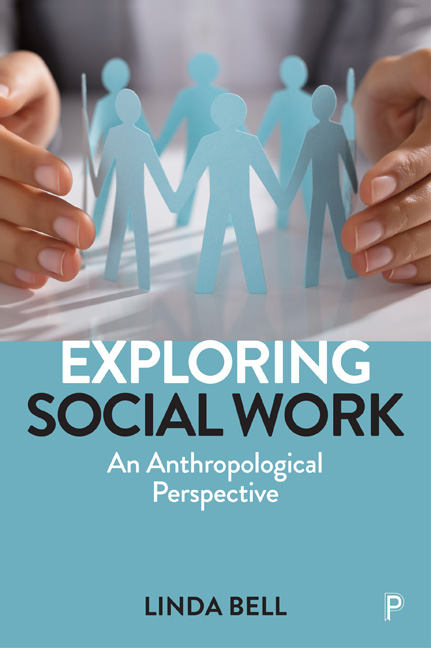Book contents
- Frontmatter
- Dedication
- Contents
- Acknowledgements
- Preface
- 1 Introducing Social Work: Who are Social Workers? Why do we Need Them?
- 2 Getting Involved: An Anthropological and Auto-Ethnographic Journey
- 3 Time and Change: UK Social Work and Comparative European Welfare Policies Since 1990
- 4 Becoming: Being Admitted, Educated and Trained in Social Work
- 5 Growing: Experiencing Social Work Education and Socialisation
- 6 Identifying
- 7 Valuing and Transgressing
- 8 Relating and Partnering: Social Workers, Clients/Service users and other Professionals
- 9 Knowing and Evidencing: Building a Research Base, Mapping and Modelling
- 10 Organising: Influences of the state, Organisations and Wider Social Policies
- 11 Symbolising: Cultural Representations in Theory and in Practice
- 12 Changing: The Future – Social Work in Wider Society
- References
- Index
11 - Symbolising: Cultural Representations in Theory and in Practice
Published online by Cambridge University Press: 04 March 2021
- Frontmatter
- Dedication
- Contents
- Acknowledgements
- Preface
- 1 Introducing Social Work: Who are Social Workers? Why do we Need Them?
- 2 Getting Involved: An Anthropological and Auto-Ethnographic Journey
- 3 Time and Change: UK Social Work and Comparative European Welfare Policies Since 1990
- 4 Becoming: Being Admitted, Educated and Trained in Social Work
- 5 Growing: Experiencing Social Work Education and Socialisation
- 6 Identifying
- 7 Valuing and Transgressing
- 8 Relating and Partnering: Social Workers, Clients/Service users and other Professionals
- 9 Knowing and Evidencing: Building a Research Base, Mapping and Modelling
- 10 Organising: Influences of the state, Organisations and Wider Social Policies
- 11 Symbolising: Cultural Representations in Theory and in Practice
- 12 Changing: The Future – Social Work in Wider Society
- References
- Index
Summary
In this chapter, I want to explore some ideas relating to symbols and what we might term ‘cultural representation’ in social work; in doing this, I will be reflecting on various narratives and experiences gleaned from my informants and/or that I have experienced myself, including material already discussed in previous chapters. Such reflection brings us back to the purpose I expressed in Chapter 2, which was to construct ‘a dialogue between those under the scrutiny of anthropologists on the one hand, and anthropologists themselves on the other’ (Barnard, 2000: 177).
There is a long tradition in anthropology of the study of symbolising (semiology) (for a review, see, for example, Turner, 1975). These ideas have developed across anthropology, with anthropologists such as Victor Turner (1969) and Mary Douglas (1986; 1999) becoming well known for their explorations into the analysis of symbols, including those used in ritual and in classification systems; these focused mainly on cognitive understandings from all kinds of societies. Douglas (1986), in particular, applied ideas such as her developing grid and group classification(s) to various settings, including organisations in Westernised societies. Interestingly, she has also spoken of the ways in which some anthropologists have used exemplars ‘in order to avoid a distinction between real and symbolic’ (Douglas, 1999: 292, emphasis added). The anthropologist Byron Good, whose work with doctors I have already discussed, says that he eschews reality prior to interpretation, and suggests that, for example, medical knowledge in various contexts is ‘knowledge of distinctive aspects of reality mediated by symbolic forms and interpretive practices. Each depends upon a form of correspondence between language and the empirical world … [that is,] that which is found within human experience’ (Good, 1994: 176, emphasis added).
Being inevitably concerned with diversity and difference (similarly to social workers, in fact), anthropologists such as Good try to use what they identify as symbolic forms to understand and interpret what is going on in another culture. In order to do so, they are therefore dependent on the idea that there is a cultural explanation to be found, and perhaps this can also be seen as distinct from actual reality. As already discussed in Chapter 2, I am aware of the limitations of the notion of ‘culture’, especially if we were to use this as a broad category in relation to social work overall (see Kuper, 2000).
- Type
- Chapter
- Information
- Exploring Social WorkAn Anthropological Perspective, pp. 157 - 168Publisher: Bristol University PressPrint publication year: 2020



